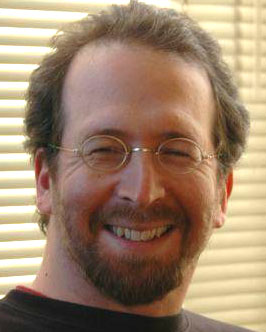TRANSLATE THIS ARTICLE
Integral World: Exploring Theories of Everything
An independent forum for a critical discussion of the integral philosophy of Ken Wilber
SEE MORE ESSAYS WRITTEN BY JEFF MEYERHOFF
The Pragmatics
of Mysticism
Further Remarks on the Projective Arc
and the Theological Echo Chamber
Jeff Meyerhoff
My point still stands that the hard problem in mysticism doesn't get resolved by the advocacy of trusting yourself.
I stand corrected. Lane, Diem-Lane and I all take a pragmatic stance toward spiritual practice and agree that it's not useful to talk of finding an Ultimate Truth and that the spiritual practitioner should be open to a variety of interpretive options – teachers, teachings, traditions – depending on what their mystical experience tells them. As good Enlightenment skeptics of authority we advocate that the individual trust their own experience primarily and be cautious about deferring to an external authority.
But my point still stands that the hard problem in mysticism doesn't get resolved by the advocacy of trusting yourself, as much as I agree with Lane and Diem-Lane that people should tend toward wariness of teachers, groups and traditions. The hard problems are the ones I described in my reply, “Whose Truth? Which Tethering?,” where it's tough to know what's right. How do we advise people who have those hard spiritual dilemmas I gave as illustrations? There are answers, but it's tricky. Our eminently reasonable valuing of the primary importance of the individual's experience will not solve the tough dilemmas that personal explorations will create, although it will solve some of the easier problems, which is certainly valuable too.
In addition, I advocate a shift in emphasis from the epistemological talk of mystically “being in touch with Reality” and “knowing the Truth” and a greater emphasis on the ethical by asking what kind of person we become through whatever self-development practices we do. If a fundamentalist Christian - who thinks a non-believer like myself is going to burn in hell - spends their days helping people then I like that latter part of what their religion leads them to, while fearing that their anti-scientific, literal reading of the Bible has bad consequences for society's fruitful understanding of the world. The results of people's actions should concern us more than the content of their beliefs; unless the content of their beliefs result in bad consequences. For example, George Bush and the Republican Party's scientific know-nothingism and science-bashing from '00 to '08 resulted in a diminishment of science funding, research and authority.
I'm not, as the Lane's assert, saying my ethics-trumps-epistemology maxim is the universally correct way to practice. I'm just doing what we all do: assess the current prevalent spiritual approaches, identify a problematic aspect, and advocate through public discourse what I think would be a good diagnosis and remedy. I say: let's focus in our self-development practices on something “more important” than finding an illusory Truth. They ask: '“More important to whom?” To Meyerhoff? To us? To all sentient beings?' Well, to me and I hope to you when I tell you my thoughts on the matter and listen to your response. None of us are announcing the absolute truth (although we may imply that we are for rhetorical purposes); we are participating in the pragmatic and Wilberian third strand of any valid knowledge quest: appeal to the relevant community of inquirers in order to see if we can have our view prevail. There's a vast territory to inhabit between the poles of absolute truth and radical relativism.
I like the pluralism of Ken Wilber's integral life practice which advises that we take all beneficial practices of the self – spiritual practices, therapies, bodywork, exercises and philosophies – and use them to become better in ourselves and to others. This is a shift away from the traditional mystical emphasis on knowing the Truth, being with the enlightened one, finding the True Path or the most sacred text. Given Lane, Diem-Lane and my doubts that there is such an Ultimate Truth, searching for It would be futile. But we can emphasize the ethical side of mystical and all self-development practices, such as right action and compassion, when in discussion with others. This is a pragmatic approach, in the tradition of William James and John Dewey (an Alexander Technique practitioner), that is eclectically open to all practices of self-development and recommends that the practitioner choose their path based on results rather than truths. (Of course they can always honor good results with the designation “truth.”) The debate over which results we should strive for, which practices produce them, and what our goals should be will continue in our own minds and in our discussions with others.
|

 Jeff Meyerhoff, M.A., L.S.W. is the author of "Bald Ambition: A Critique of Ken Wilber's Theory of Everything" and other essays on integral theory. He majored in economics and sociology and has studied philosophy, psychology, politics and spirituality. He's been employed as a social worker for the last 25 years. His weekly radio show, "The Ruminator," is archived at www.wmfo.org. His blog is www.philosophyautobiography.blogspot.com and his email is [email protected].
Jeff Meyerhoff, M.A., L.S.W. is the author of "Bald Ambition: A Critique of Ken Wilber's Theory of Everything" and other essays on integral theory. He majored in economics and sociology and has studied philosophy, psychology, politics and spirituality. He's been employed as a social worker for the last 25 years. His weekly radio show, "The Ruminator," is archived at www.wmfo.org. His blog is www.philosophyautobiography.blogspot.com and his email is [email protected].